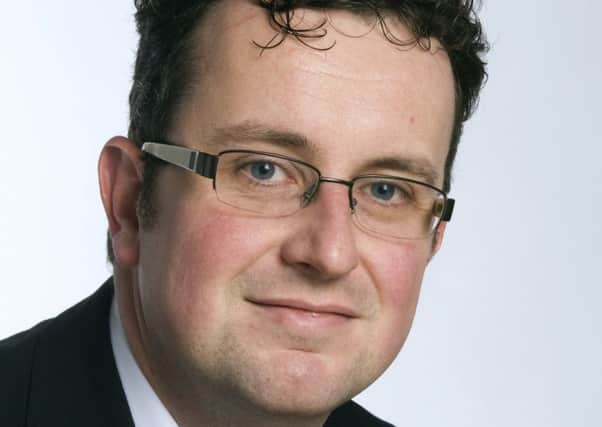Liam McMonagle: What is '˜your' business?


My immediate reaction was surprise. I didn’t know he was ill. Nor, it turned out, did almost everyone bar his closest family and friends. His latest album only came out the previous Friday and he chose to keep his illness private.
I’m not surprised he wanted to do that but being able to do it in the modern world is remarkable. Some people have observed that the secrecy of his last months and illness is, itself, some kind of subversive artistic statement.
Advertisement
Hide AdAdvertisement
Hide AdThis is nuts. Having a private life treated with respect is a fundamental human right – read the European Convention on Human Rights – not an unusual form of artistic expression. Privacy is a fundamental right we all have: the entitlement to live our own lives without being subject to the scrutiny and intrusion of others and for our information to be handled privately and securely.
Whether the Human Rights Act, Data Protection Act and other laws in this area work effectively is an ongoing topic of debate. The boundaries between public, professional and private space seem constantly on the move. Almost every day, jobs are lost because of ill-judged social media posts – such as Michael McFeat who even found himself deported after his hosts failed to see the funny side of his views on the equine characteristics of the Kyrgyz national dish.
The European Court of Human Rights also drew attention to this issue in a Romanian case earlier this week. It ruled that an employer was entitled to look at personal communications an employee had sent via a messaging service. There was a clear policy statement advising that monitoring can happen and personal use was prohibited. The employee may as well have copied his boss into the correspondence – it was, effectively, not taking place in private.
Outside the workplace, the difference between public and private, and the risk that private might actually become public, is often hard to measure. I’m a lawyer who has written numerous sets of web terms and privacy statements over the years and struggle to understand what numerous websites will do, or not do, with my information. Many of the games, quizzes and interactive features offered in social media mine data and acquire access to a user’s postings without always being too explicit about it. The trend towards “plain English” and “clear languge” has offered an easy pretext for many organisations to describe what they do in terms which may be easier to read but are harder to understand than before.
It is very common, nowadays, for employers to vet the social media histories of potential job candidates, very few of whom will have activated privacy features to prevent material being reviewed in that manner.
And because so many of us are happy to share our own information, we expect others to do it as well. We expect to know the sexual preferences and personal lives of politicians and sports stars. It doesn’t mean we are entitled to. I have no interest in David Mundell’s private life and I only hope his recent statements were made out of choice by him rather than any sense of obligation. Plenty things are “none of our business”.
Lastly, I use Facebook a lot and Twitter occasionally. I may not always practise exactly what I preach. My policy is not to make any comment I would be uncomfortable showing to my mother, my wife, a client or my managing partner. Which I think is a rule that generally works.
• Liam McMonagle is a partner in technology, media and entertainment at law firm Thorntons